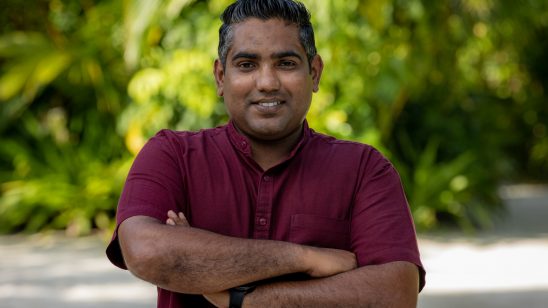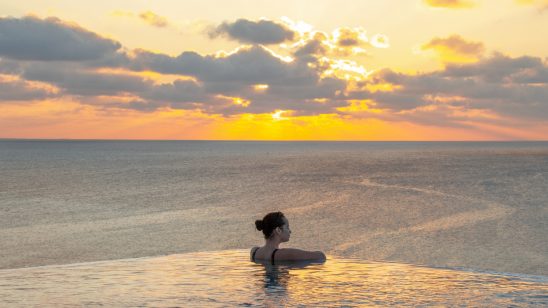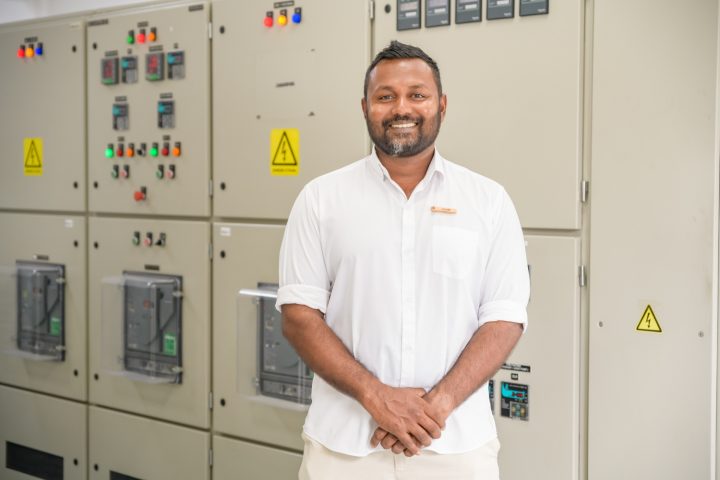
Sustainability, efficiency, guest satisfaction: Engineering vision of Jumeirah Maldives Olhahali Island’s Mohamed Adam
We recently sat down with Mohamed Adam, the Chief Engineer at Jumeirah Maldives Olhahali Island resort. In this exclusive interview, he shares his insights into the engineering operations of the resort, the challenges and opportunities of working in a remote island setting, and the innovative solutions he and his team have implemented to ensure sustainability, efficiency, and guest satisfaction. From leading complex projects to handling emergency situations, Mohamed Adam reveals what it takes to be a successful Chief Engineer in the Maldives’ hospitality industry.
Hotelier Maldives: Could you provide us with an overview of your role as the Chief Engineer at Jumeirah Maldives Olhahali Island and the responsibilities that come with it?
Mohamed Adam: Serving as the Chief Engineer at Jumeirah Maldives Olhahali Island, my role is quite expansive, overseeing the resort’s entire engineering operations. My primary responsibility is ensuring the smooth functioning of all mechanical and electrical systems, upholding the highest standards of comfort, safety, and efficiency. This involves supervising maintenance and repair activities, leading engineering projects such as renovations, expansions, and integrating energy-efficient systems. I also focus on monitoring energy consumption, exploring renewable energy options, and adhering to safety regulations through regular inspections and staff training.
HM: Can you walk us through what a typical day looks like for you?
MA: A typical day begins with inspecting various engineering systems and facilities across the resort. I gather my Engineering team for a morning briefing, discussing ongoing maintenance and repair tasks, addressing concerns, and allocating resources. Following this, I attend the morning meeting with the resort’s management team, reviewing the progress of ongoing projects and ensuring that projects are on schedule and meet the required standards. A significant part of my day is dedicated to engaging with Engineering colleagues for feedback, guidance, and professional development. Reviewing the engineering budget, tracking expenses, and preparing reports for the management team is also a part of my work routine. Before concluding the day, I assess achievements and the productivity of the day, plan tasks for the next day, and ensure the resolution of any urgent matters. However, flexibility is key as the day-to-day responsibilities may vary based on the resort’s specific needs and priorities.
HM: The Maldives is known for its stunning natural beauty. How does the resort ensure that its engineering practices and infrastructure align with the principles of sustainability and environmental conservation?
MA: In alignment with the resort’s commitment to sustainability and environmental conservation, our engineering practices aim for a 40 percent reduction in energy consumption. We have set an ambitious goal to achieve this. The implementation of energy-efficient technologies like solar PV systems, LED lights, and motion sensors is in the pipeline, resulting in a 25 percent reduction in carbon intensity. Additionally, our waste management system targets a 30 percent reduction, and water-saving technologies such as low-flow fixtures, shower regulators, and tap aerators have been incorporated throughout the property, contributing to water conservation and reduced energy costs.
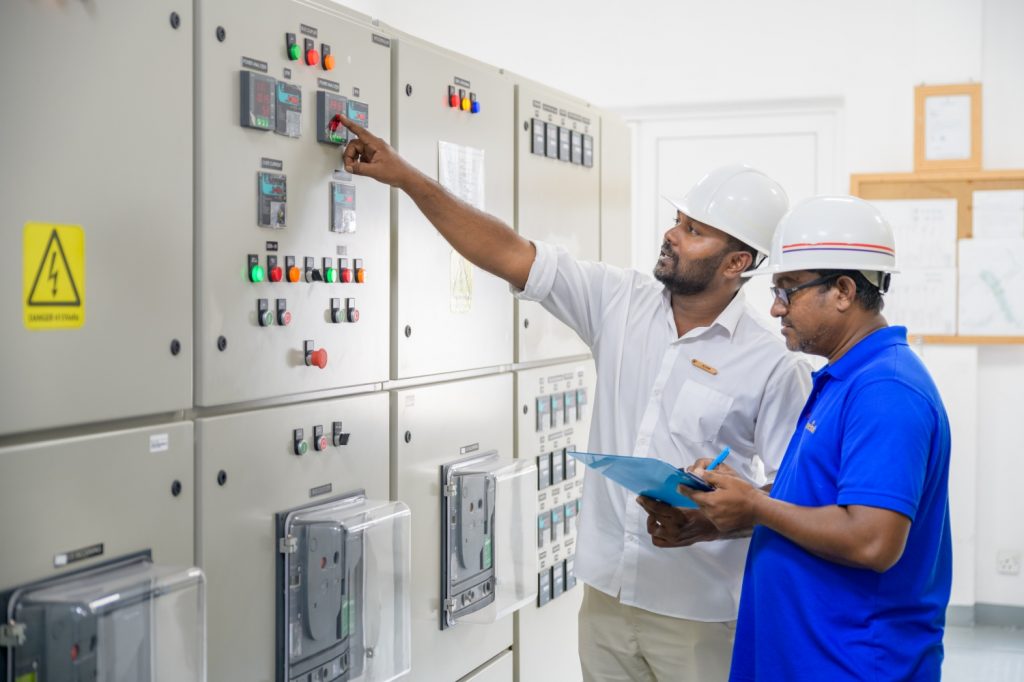
HM: In a resort setting, guest satisfaction is of utmost importance. How do you and your team contribute to creating a seamless and enjoyable experience for guests through your engineering efforts?
MA: I strongly believed that our Engineering team plays a crucial role in ensuring a seamless and enjoyable experience for our guests. By maintaining the resort’s infrastructure, addressing technical issues promptly, and continually improving processes based on guest feedback, we ensure optimal comfort and safety, which contributes significantly to making each guest’s stay exceptional and memorable.
HM: Can you share a memorable experience or incident that highlights the importance of your role as the Chief Engineer?
MA: In a particularly memorable incident from my career, I received an urgent call at 2:00 am from the powerhouse operator, alerting me to an unusual noise emanating from the main generator. This was no ordinary night; the resort was running at full capacity, with 80 to 90 percent occupancy. Acknowledging the critical role of the main generator in powering the entire property and guest villas, I gathered my team and rushed to the powerhouse, where we had only six hours to identify and rectify the issue. Upon inspection, we discovered a completely damaged fan hub bearing that required immediate replacement. With the clock ticking and the pressure mounting, we managed to identify a bearing from a previous generator with some damage. We connected the pieces and assembled a makeshift bearing set to bring the main generator back into operation by 6:00 am. This experience reinforced the importance of having contingency plans and robust maintenance procedures in place to handle unforeseen challenges effectively. In the face of adversity, our team’s commitment and resourcefulness prevailed, highlighting the critical nature of our role in maintaining the seamless operation of the resort.
HM: Technology plays a vital role in the hospitality industry. How does Jumeirah Maldives Olhahli Island leverage technology and innovation in the engineering department to enhance guest experiences and improve operational efficiency?
MA: At Jumeirah Maldives Olhahali Island, technology is leveraged throughout the resort to enhance guest experiences and operational efficiency. Throughout our property, we have implemented a key card system for secure access and automated controls for lighting and room amenities. Additionally, we utilise the exhaust heat from our diesel generators to power our laundry boiler and heat shower water, reducing our reliance on diesel fuel and conserving energy. Moving forward, we plan to implement various other technologies such as energy management systems to track and optimise energy consumption, water management systems to monitor and reduce water usage, and waste management systems to recycle and minimise waste generation.
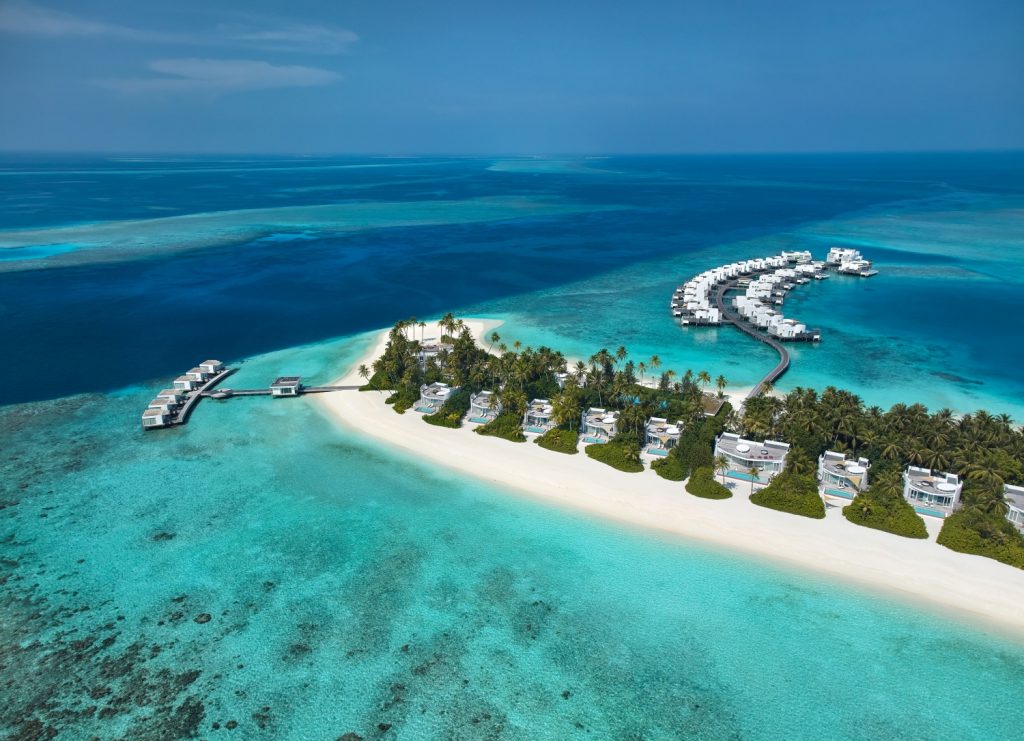
HM: Training and development are key aspects of any profession. Can you tell us about the training programs or initiatives in place at Jumeirah Maldives Olhahali Island to keep your engineering team up-to-date with the latest industry advancements?
MA: Jumeirah Maldives Olhahali Island’s commitment to excellence is reflected in our training and development programmes. Continuous learning and knowledge sharing are encouraged, with technical training programs covering the latest technologies, equipment, and systems in the industry. In addition, we provide technical training programs to ensure that the team is well-versed in the latest technologies, equipment and system used in the industry. This includes, energy management, water treatment, electrical systems, and other relevant areas. Professional development workshops, conferences, and certification programmes from external parties further provide in-depth knowledge of the latest trends and research in the field to our Engineering team. What truly sets us apart is the daily support and guidance I receive from our General Manager, Mohamed Ashraf. His strategic insights in planning and execution motivate me to excel in my role as Chief Engineer. This collaborative spirit enhances our collective commitment to continuous learning and knowledge-sharing, a culture embedded not only in our resort but across all Jumeirah properties.
HM: Lastly, what do you find most rewarding about your role as the Chief Engineer at Jumeirah Maldives Olhahali Island, and what advice would you give to aspiring professionals who want to pursue a career in engineering within the hospitality sector?
MA: The most rewarding aspect is combining my passion for engineering with the hospitality industry. Witnessing how my work directly contributes to the comfort and satisfaction of our guests is incredibly fulfilling. One piece of advice I would give to aspiring professionals who want to pursue a career in engineering within the hospitality sector is to develop a strong technical foundation, understanding the unique challenges of working in an isolated environment, and embracing continuous learning and innovation to excel in this dynamic field.





